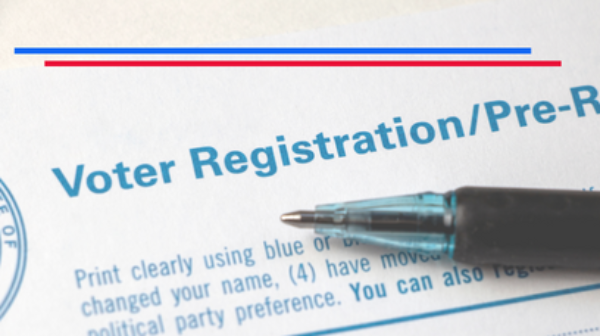Public Wise Study Finds that High Levels of Disillusionment and Lack of Trust in Government, Not Apathy, Are Major Barrier to Voting
Non-voters in key swing states point to a lack of transparency and accountability in government as a main deterrent to voting in 2020 election
WASHINGTON, D.C. – Public Wise, a voting rights organization which works to secure a government that reflects the will and protects the rights of the people, released The Unheard Third: Why Voting-Eligible Citizens Sat Out the 2020 Election research report today. The study consisted of 23 focus groups across 5 states with 148 Americans who were eligible to vote but did not vote in the 2020 election to examine if apathy, a popular argument for low voter turnout in the political space, is the main deterrent for nonvoters.
The focus groups were conducted from late November 2020 through February of 2021 in key swing states Arizona, Georgia, Nevada, North Carolina and Pennsylvania. In addition to stratifying by state, Public Wise stratified groups by ethnicity, partisan affiliation and age. All of the focus group participants were eligible to vote in 2020 and chose not to. 81 percent stated that they were registered to vote. Public Wise selected states whose 2020 results were close and/or unexpected and where eligible non-voters would have been under significant pressure to participate in the election.
Public Wise’s focus group research found that the widely accepted belief that apathy is the main driver of low voter turnout is inaccurate. Focus group members pointed to a lack of trust in the government and elected officials, a lack of independent news outlets and a rise in mis-and dis-information, and a lack of trust and transparency in voting systems as the main barriers to participating in elections. The majority of non-voters are not apathetic; they are disillusioned with the American voting process and governmental systems and frustrated by a perceived lack of trust, transparency and accountability with the government, electoral system and media.
“The apathy narrative around non-voters places the blame on individuals who choose not to participate in civic life, making it easy for voting initiatives and political organizations to ignore non-voters. Our research clearly demonstrates that a majority of non-voters choose not to exercise their civic duty because they are disillusioned with a broken system. Not voting is an active, not passive choice, one made in response to a lack of trust in our systems” said Christina Baal-Owens, Executive Director of Public Wise. “Our institutions have failed them. Political outreach and strategy is built around this concept that non-voters are apathetic, and voting organizations and campaigns must acknowledge these realities and adjust their outreach strategies accordingly.”
“We found virtually no evidence of apathy in our focus groups, and a majority of our participants are registered to vote and have previously voted. Our research finds that many non-voters lack trust in our government, which makes them reluctant to participate in elections without seeing substantial shifts in the level of accountability and transparency in our political system.” said Dr. Jessica Kalbfeld, Director of Research at Public Wise. “Accountability was a major theme we encountered over and over again. The non-voters we spoke to are tired of politicians failing to act in the best interest of their constituents and failing to follow through on promises.”
Several of the focus groups took place in the immediate aftermath of January 6, 2021, and Public Wise asked focus group participants about their opinions of the events of that day. Their responses point to the events of January 6th as a crucial avenue by which accountability should be pursued. Across all focus groups, regardless of demographics, nonvoters expressed shock, horror, and embarrassment at January 6th. Most participants blamed Donald Trump for what happened, citing his inflammatory rhetoric and deliberate disinformation around election fraud in the months before and after the 2020 election. Many also expressed the opinion that regardless of blame placed on politicians or parties, the individual participants in the events at the Capitol should be held personally accountable for their actions.
